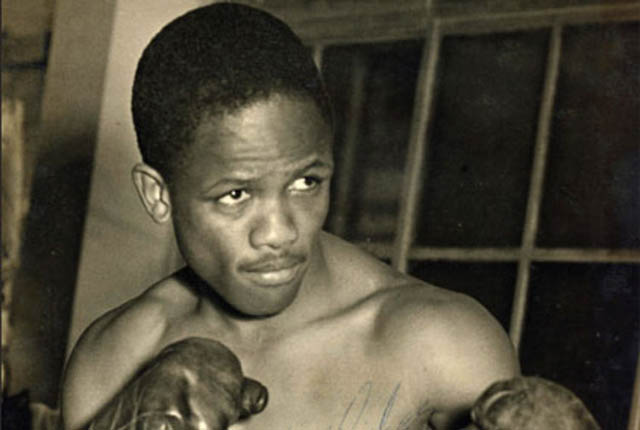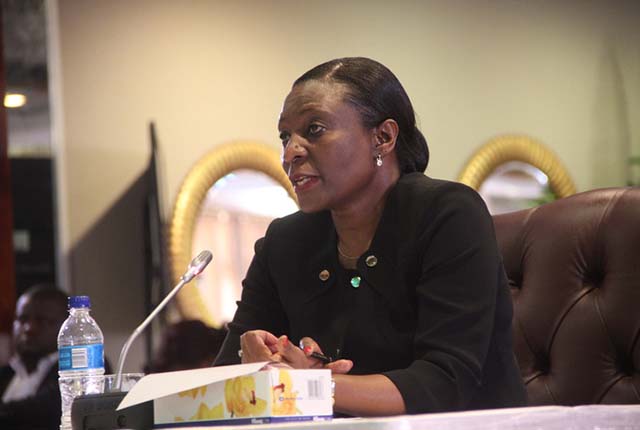Ode to Manyuchi and other traders of punches


Charles Manyuchi
David Mungoshi: Shelling The Nuts
The other day I boarded a London-bound Johnsons bus from a cosy little waiting room at a place called Hanley. The weather was nippy outside so my wife and I joined the other old-timers inside the waiting room.We had hot coffee while we waited. An old boy in a thick woollen jacket, a cap and rimless glasses, smiled at me. It felt nice being acknowledged like that so many thousands of miles away from home. The bus arrived and the driver checked us in and it was time to go.
Off we went to London town to see the Thames River and London Bridge. The fabled town I had heard and read so much about lay in the cold distance. About two hours later we got in and somehow I knew that we had arrived.
The narrow streets and the Gothic and pre-Gothic architecture stood out. The masonry was fantastic. I could see why David Copperfield and Oliver Twist would have been part of this landscape. Everything was so picturesque like a scene from a storybook, done with the expert strokes of a gifted artist.
Any doubts about where I was were put paid to by Harrods Departmental Store. Right there before my eyes was Harrods, finely decorated for the festive season! And the Londoners were here, there and everywhere. I kept hoping to see some famous face in the crowd: Nigel Farage the UKIP leader perhaps or Adele the musical sensation. Strange places have this strange way of making you plunge into wild daydreams.
“Okay then boys and girls,” said the driver playfully. “We’ll drive around a bit before we stop at the hotel. There you can rest your legs and fill up your tummies with something.” Then, with a bit of a chuckle in his voice he said he and his mate, the co-driver, had done their bit for now and would hand us over to a lad called ‘Doog’ who “knows everything about London and has a wonderful cockney accent.” Imagine the let-down when Doog introduced himself as Doug and spoke to us in BBC English.
Trafalgar Square gave me mixed feelings. I had always thought it was much bigger and I imagined all these bird watchers and lovers feeding the pigeons and one or two zealots here and there shouting about some cause or other. Perhaps a street musician too, trying to earn something for a drink at the pub. But when I finally saw it, Trafalgar Square was “none of the above”! Nevertheless, my thoughts did an acrobatic leap backwards.
I thought I saw welterweight boxer Schoolboy Ernest Mussolini standing there on a wintry afternoon, dressed for the weather, with woollen hat, gloves and an overcoat.
I remembered this picture of him in an old magazine, Zimbabwe’s first boxer to fight abroad. Mussolini feeding the pigeons on Trafalgar Square was so chic. He had come up in the world since boarding that plane to his first international bout. The caption under the picture said Schoolboy Mussolini had married a nurse from home. In those days if you were black and living in Rhodesia getting married to a nurse was a classificatory achievement that made you soar to the higher echelons of society.
You’re probably wondering about our welterweight boxer being called Schoolboy. Well, there was a romance between ringside fans and others with young boxers, particularly if they had the better of older and more experienced boxers, outwitting them and scoring more points to claim famous victories. Schoolboy Mussolini had done that often enough at the Stanley Square Boxing ring in Bulawayo’s Old Location.
Stanley Square is a venue built just below a block of hostels. How we envied the occupants of the hostels adjacent to the stadium! They could watch matches for free from their rooms above. Another ‘schoolboy’ boxer was Jack Schoolboy whose fledgling career ended when he was knocked clean out of the ring by a third ‘schoolboy’ from the City of Gwelo — Langton Schoolboy.
Those were the days of Tiger Sheki Mupoto, the charismatic featherweight from Murehwa. His fanatical band of fans sang his praises from the ringside. He was one of the country’s few professional boxers at the time. Tiger Sheki was supremely gifted and won the majority of his fights except one or two against a rival called Cranos Zuma, the dancing master. Sheki was the subject of a comprehension passage in a primary school English reader. That’s how successful he became.
Boxing may not attract the same crowds as football matches do, but the enthusiasm of the fans is unparalleled. Over the years, from time to time, Southern African boxers have caught the public eye, but perhaps none as resoundingly as South Africa’s Jake Tuli, born Jacob Ntuli in Johannesburg. Jake became a professional boxer in 1950, aged 19. In his eighth bout he captured the South African bantamweight title.
He went on later to win the flyweight title as well. In 1952 Jake Tuli won a British Empire championship (the forerunner to the Commonwealth title) and became the first black man to accomplish such a feat. Ring magazine ranked him the top flyweight boxer. “He had 19-fights in South Africa, 25-fights in Great Britain, 1-fight in Portuguese Mozambique, 1-fight in the Philippines, and 1-fight in Rhodesia.” Ntuli led the way in becoming the first black South African boxer that the world took notice of.
His achievements are all the more remarkable when seen against the politics of his time. Black boxers could not, in South Africa, fight white boxers and this had a rather limiting impact on their prospects. Another debilitating restriction had to do with who could promote them. Black South African boxers could only be promoted by blacks.
Ironically, Jake Tuli was a favourite of the white boxing establishment. He is ranked among the ten best South African boxers of all time. For this reason he was, in recent times, posthumously awarded South Africa’s Order of Ikhamanga in Silver. Jake Tuli made boxing a respectable profession and became a revered role model for black youths.
Zimbabwe’s current boxing idol is Charles Manyuchi, the World Boxing Council silver welterweight champion. He is in line for the big one. We must embrace him, endorse him and shout, “Mwana wedu iyeye!” and claim him as our very own. Wherever he fights he raises Zimbabwe’s flag high. We need more “ordinary celebrities”, people from the rank and file making it out there.
People whose lives can create epic films and be celebrated in song, dance and theatre. Film people and musicians can do this for Manyuchi and many others. In the context of Zimbabwe’s new school curriculum, this is proper and appropriate. The new curriculum is about tangible outcomes; so, learners must leave school with useful skills and knowledge. Manyuchi did!
King Kong, a musical show catapulted Miriam Makeba, Lemmy Special Mabaso and Hugh Masekela to prominence after their tour of the United Kingdom in 1961. In real life King Kong was Ezekiel Dhlamini, a Zulu lad from Vryheid. Dhlamini’s phenomenal rise to the top of South African boxing tapered out into lost bouts, drunkenness, off-ring violence and murder. He stabbed his girlfriend to death in a club.
He didn’t like her arrival there surrounded by rival gangsters. Convicted, he asked for the death sentence, but got 14 years hard labour instead. Dhlamini drowned in March 1957 at age 32. Despite his tempestuous life, he was perfect for what became the first township musical in the region. In the townships everyone knew him as a bully and a braggart. Township dwellers forgave him his flaws because he brought colour, vitality and excitement into their lives.
Nathan Dambuza Mdledle, of Manhattan Brothers fame, played the role of King Kong. The music was composed by Todd Matshikiza and the cast included Kippie Moeketsi, widely credited with what became township jazz. Miriam Makeba was the shebeen queen who ran the place that King Kong in real life frequented.
Boxing was more or less dead in the region after the demise of pugilists like Lottie Mwale of Zambia, Kilimanjaro of Zimbabwe and Baby Jake of South Africa. Like the Bundu Boys, Manyuchi has had to suffer the ignominy of being recognised and patronised by people in other lands before we accorded him the same honour.
Looking to the future, the affable Manyuchi is an obvious role model for budding boxers and other youths with dreams. His demeanour and fearlessness even in such hostile terrain as Russia on a cold night are a marvel.
Who knows what the future holds? Look at what Bob Marley and Usain Bolt have done for Jamaica. We need to appreciate winners like Manyuchi and others with greater fervour. In addition to his diplomatic passport, movies and endorsements are in order for our man in the ring — Charles “Shocker” Manyuchi!
David Mungoshi is an applied linguist, poet, short story writer and award-winning novelist.









Comments